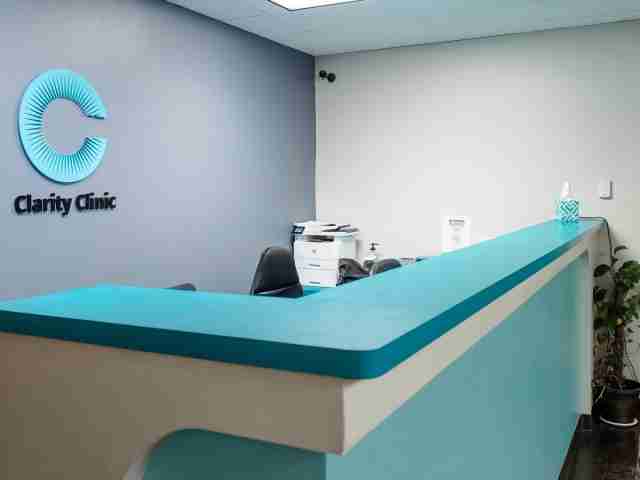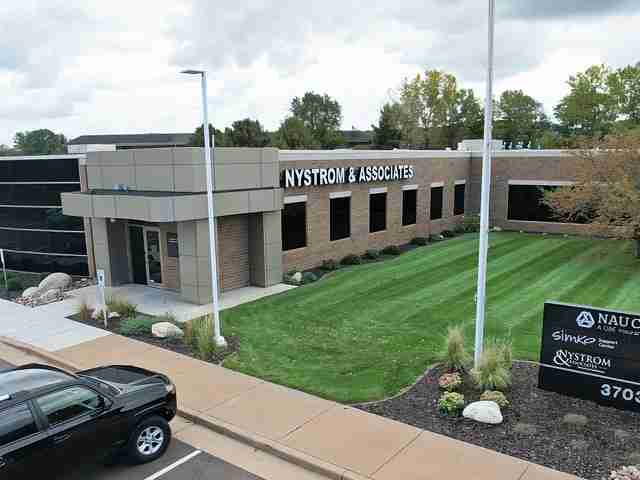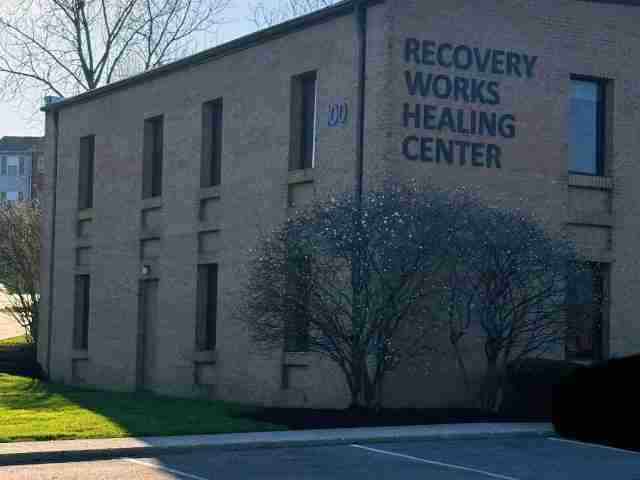More About Treatment Centers for Narcissism
Narcissism is a personality disorder characterized by an excessive sense of self-importance, an extreme need for admiration, and a lack of empathy for others. People with narcissism often lack insight into their behavior and view themselves as superior to others. Narcissism can manifest in various ways, including grandiosity, arrogance, entitlement, and a lack of empathy.
Despite their outward arrogance and confidence, narcissists often feel extremely insecure and have an unstable sense of self. They rely on others for confidence and their sense of self-esteem.
Narcissism is categorized into 3 subtypes:
- Grandiose narcissism, which entails overt confidence, arrogance, need for admiration, and domination in interpersonal relationships.
- Vulnerable narcissism appears as hypersensitivity, a need for admiration, extreme defensiveness, and avoidance of people or places that cause feelings of inferiority.
- Pathological narcissism entails a combination of grandiose and vulnerable narcissism and a consistent pattern of harmful behaviors used to self-regulate.
What Are Some Warning Signs of Narcissism?
You or someone you know may have NPD if you notice a few key signs. Per the DSM-5, you must have 5 of these symptoms to receive a diagnosis of NPD.
- A grandiose sense of self-importance: They demand you see them as extremely important and special, even when they don't have anything to back their claims.
- Preoccupied with fantasies of success, power, beauty, love, or brilliance: They may chase after an unrealistic fantasy or obsess over it, even when it's unrealistic.
- Need constant admiration: They require excessive admiration, even when it's not deserved.
- Have a sense of superiority: They believe they are highly special and should only associate with people and places who can understand just how special they are.
- Extremely entitled: Their sense of entitlement demands they receive special treatment and attention, whether it's deserved or not.
- Exploitative: They take advantage of you and others to serve their own needs.
- Non-empathetic: They're unable to feel or have empathy.
- Highly envious: They're jealous of your happiness and success and believe it's mutual.
- Arrogance: They're extremely haughty, arrogant, and entitled.
What Causes Narcissism?
Narcissism doesn't have a primary cause, but it does have contributing factors. These factors include genetics (inheriting traits), being raised by a narcissistic parent, growing up with inadequate praise and attention, or growing up with too much praise. These factors could make you feel superior to others from a young age, which can eventually manifest into narcissistic personality disorder (NPD).
Trauma, usually in childhood, can cause the traits linked to narcissism as well. Genetics can also cause these contributing personality traits, which include aggression, poor tolerance of distress, and emotional dysregulation. You can inherit these traits from a parent with or without narcissism.
How Can You Differentiate From Healthy Self-Esteem And Narcissistic Behavior?
Healthy self-esteem stems from your accomplishments, abilities, and expectations to receive and give love. Narcissism builds self-esteem from a focus on yourself and your own greatness, which usually has no foundation to it.
So, healthy self-esteem has a foundation beneath it. Narcissistic self-esteem often has nothing to back it.
Do Rehabs Treat Narcissism?
Yes, many centers focus specifically on treating mental health conditions, including narcissism. Many other rehab centers treat co-occurring mental health disorders like narcissism alongside substance use disorders. You can attend several levels of treatment for narcissism. These include:
- Outpatient, where you meet once or twice a week with others in treatment and your care provider.
- Intensive outpatient, where you meet 3-5 times a week for several hours at a time for more intensive care.
- Partial hospitalization, where you meet 5-7 times a week for a full day, or most of one.
- Residential, where you live in a rehab center for 28+ days and engage in treatment with a community of peers and treatment providers.
- Inpatient, where you live in a treatment center or hospital and receive 24/7 monitoring.
In each level of care, you'll likely receive 1-1 therapy with a therapist and participate in group therapy. The exact type of therapies used will vary based on your symptoms, medical history, age, and more. However, you can expect to engage in one or more types of evidence-based therapy throughout your treatment.
How Can I Find Support?
- Rehabs for Narcissism
- Telehealth Provider
- Talk to a supportive friend or family member
- Talk to your primary care physician
- National Helplines
What Therapies Are Used to Treat Narcissism?
Ongoing therapy and a positive patient-therapist relationship can help you manage NPD. You'll need to stay in treatment to manage the symptoms of narcissism and its effects on your daily life and relationships.
To help you manage NPD, your therapist may use psychoanalytic and schema therapy, along with other talk therapies.
- Cognitive Behavioral Therapy (CBT): a form of psychotherapy that encourages you to challenge and change unhelpful thoughts, feelings, and behaviors. For narcissism, these behaviors could be ones that harm relationships, like aggression, violence, and yelling.
- Schema Therapy: this therapy focuses on emotional regulation, which can help you regulate your emotions, self-esteem, and confidence without needing the admiration of others.
- Interpersonal Therapy (IPT): a short-term form of psychotherapy that helps you identify and address interpersonal issues that may contribute to narcissism.
- Dialectical Behavioral Therapy (DBT): an approach that combines elements of CBT and mindfulness to help you become more aware of your thoughts, feelings, and behaviors.
- Psychoanalytic therapy: this therapy for narcissism focuses on the emotions you express towards other people, namely your therapist, since they're right there with you. Then, you'll dissect the cause of your emotions and decide if they're appropriate.
- Medication: Some antidepressants, mood stabilizers, and antipsychotics can help those with NPD, though no medication has specifically been approved for narcissism yet.
Psychiatrists and therapists often use a combination of different therapies depending on the individual patient's needs and unique presentation of narcissism. Psychiatrists may also prescribe medication as an adjunct to therapy. Ultimately, the goal of treatment is to help the patient to develop healthy coping skills and strategies to manage narcissism.
Overall, treatment for narcissism must continue to effectively manage its symptoms. Whichever therapy (or therapies) works best for you, staying with it is almost as important as going to treatment.
What Is Dual Diagnosis: Understanding Narcissism and Addiction
A dual diagnosis, or co-occurring disorder, is a mental health disorder that accompanies a substance use disorder.
Narcissism and addiction often co-occur, meaning that a person can suffer from both a personality disorder (narcissism) and a substance use disorder (addiction) at the same time.
People with narcissism may self-medicate with drugs or alcohol to try to manage their symptoms, which can lead to addiction.
People with co-occurring narcissism and addiction are more likely to experience more severe symptoms and have a higher risk of relapse, suicide, and other negative outcomes.
In the US, over 9 million adults have a co-occurring disorder and half of those with a serious mental disorder have co-occurring substance use disorder.
Is Narcissism a Chronic Condition?
Yes, narcissism is often a lifelong condition that you can manage. Treatment for narcissism can reduce symptoms and teach you how to navigate the condition.
Since it's an aspect of your personality, you'll likely need continued treatment to manage its effects on your life.
What Are The Long-Term Effects of Narcissism?
In short, narcissism's long-term effects can affect all areas of your interpersonal life. When people feel belittled, unheard, unimportant, or even abused, they're unlikely to stay in relationships. Ultimately, you could lose relationships and your job statuses due to NPD. Here are a few other long-term effects of narcissism:
- Low self-esteem: Those with narcissism often struggle with feelings of insecurity and inadequacy, which can cause persistent feelings of worthlessness and inferiority.
- Inability to form meaningful relationships: Narcissists may struggle to form meaningful relationships if they can't empathize with others and place their needs for admiration and control above their friends' wellbeing.
- Isolation: Narcissists may isolate as they struggle to form relationships or maintain relationships.
- Mental health issues: Narcissism can lead to mental health issues like depression, anxiety, and bipolar disorder. They may also use substances to cope with emotional pain.
- Difficulty in the workplace: Narcissists may struggle in the workplace because of their inability to collaborate with others, their need for admiration, and their lack of empathy.
Can I Use The Family and Medical Leave Act (FMLA) for Narcissism Treatment in The U.S.?
If you've been clinically diagnosed with narcissism as a serious health condition, then you can receive Family and Medical Leave Act support. The FMLA ensures that you do not lose your job when taking necessary time (up to 12 weeks) off to heal from a serious health condition. This act also guarantees that you retain the same terms of employment that you originally had for your job.
What's provided in your FMLA may vary and has requirements for eligibility. Talk with your Human Resources (HR) department at work or look online for more information on FMLAs. Talking to Your Doctor About Narcissism Keeping a few questions in mind can help you navigate the beginnings of treatment and help your doctor understand your needs.
- How would you describe the symptoms I'm experiencing?
- What treatments do you recommend for narcissism?
- What should I expect from treatment?
- What kind of side effects can I expect from the medications you prescribe, if any?
- Are there any lifestyle changes I should make to help manage narcissism?
- Are there any support groups or other resources I can use to help manage narcissism?
- What kind of follow-up care do you recommend?
- How can I tell if my symptoms of narcissism are getting worse?
- What should I do if my symptoms don't improve?
- Are there any other mental health conditions I should be aware of?
Medications for Narcissism
No medications are used to treat narcissism specifically, but antidepressants, mood stabilizers, and antipsychotics can sometimes help.
Finding the right fit may take time. Your prescriber may try different doses and different medication classes before your symptoms improve. Depending on your situation and symptoms, you may take medications for a few months or for a few years.
When talking to your doctor about medications for narcissism, keep these questions in mind:
- How long will it take for me to feel the medication's effects?
- Will this medication, or class of medications, interact with any supplements or other medications I'm taking?
- What time of day should I take this medication?
- Can I take this on an empty stomach or do I need to eat beforehand?
- What are the most common side effects?
- Does this medication have a Black Box/Boxed warning for an increased risk of suicide? (Your doctor will most likely bring this up right away, but it's good to check.)
- Could this prescription become addictive?
- What will withdrawals look like if we decide to stop this medication and/or try another?
Coping Strategies for Loved Ones
Caring for someone with narcissism can sometimes feel painful or distressing. In situations where you're safe and not being abused, you can take care of yourself through self-care and other protective strategies.
Set Solid Boundaries Set strong, clear boundaries to protect your energy and mental health. You may set a boundary to not discuss certain topics or put a boundary around your time. Whatever you choose, stay as consistent with it as you can.
Stay Connected to Support Stay in contact with other loved ones and friends to help yourself feel supported. Regular video calls, coffee dates, or texts can help you feel encouraged and cared for.
Keep a Safe Distance When possible, you can keep some space between you and someone with NPD. Doing so can better protect you from the interpersonal effects of narcissism.
Seek Professional Help Sometimes, you may need help from a mental health professional to help you cope with and navigate a loved one's narcissism. A therapist, counselor, or psychologist can support you and offer practical tools to help.














































